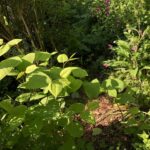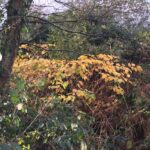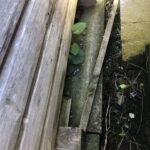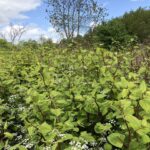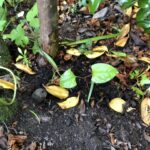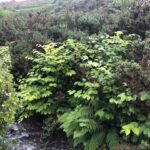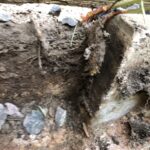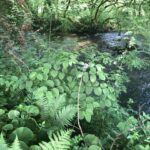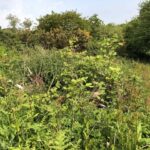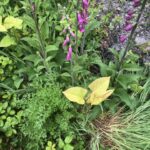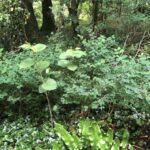Potential homeowners in most parts of Cornwall face the challenge of having to deal with Japanese Knotweed. This is a non-native herbaceous weed that can grow up to 10 -20 cm a day and is common throughout Cornwall including such areas as Falmouth, Penzance, Camborne, Redruth, and St Austell.
Japanese Knotweed, whose botanical name is Fallopia Japonica arrived in Europe in the 1840s and was first cultivated in Ireland as an exotic plant. Its vigorous growth, appearance, and popularity with bees appealed to most gardeners. However, this vigorous growth coupled with its extensive and deep root structure can exploit weaknesses and voids began in building foundations, walls, bridges and any other structure near where they were growing. This led to it becoming one of the most abhorred weeds.
Japanese Knotweed’s notorious reproduction is mainly through its root system or when its hollow stems are dispersed. A piece measuring a few centimetres could form a new plant with roots that go as deep as 2-3 metres and spread up to around 7 metres.
Who is responsible for Japanese Knotweed’s removal?
Homeowners are obligated to remove the plant as soon as they notice it growing within their gardens. Should you allow it to spread to your neighbour’s garden, you risk being issued with an ASBO. Southwest Knotweed were appointed by Truro Crown Court to act as an independent expert witness in a recent case in Falmouth, where Adam Smith, a homeowner sued Rosemary Line, his neighbour over letting the plant grow on their properties. The case that was heard by Judge Simon Carr in October 2017 was ruled in favour of Mr Smith.
Mrs Line was taxed with the responsibility of employing Cormac who is Cornwall Council’s appointed contractor over a period of five years to eradicate the weed. She is also responsible for the court fees which are believed to run into over ten thousand pounds.
Cornwall Council partners with the Cornwall Knotweed Forum to prevent the spread of this weed when it grows on land that falls under the Council’s jurisdiction. The Council was also commissioned to undertake the research on this weed on behalf of the national stakeholders.
Effects of the Japanese Knotweed
This weed & it’s stigma potentially devalues your home when it is time to resell. According to recent research, this weed costs homeowners thousands of pounds and causes a significant number of property deals to fail. Research carried out by the Crop Protection Association one in ten of property deals lose more than £4,000 because of the weed.
A poor understanding of the financial and legal risks contributes to its spread. Only one in five people know of the correct way to get rid of the plant, which should be in a licensed landfill. Glyphosate is the only herbicide that effectively gets rid of this weed, although its use has strongly been opposed.
Southwest Knotweed will Survey your property / land / commercial site and if Japanese Knotweed is recorded, we have the solutions to move forward, creating bespoke Japanese Knotweed Management plans in Cornwall, Devon & Somerset.
In Cornwall Southwest Knotweed covers Truro, Falmouth, Newquay, Penzance, Rock, Redruth, St Austell, Wadebridge, Padstow, St Ives, Hayle, Bodmin, Bude, Callington, Camborne, Camelford, Charlestown, Fowey, Helston, Hugh Town, Launceston, Liskeard, Looe, Lostwithiel, Marazion, Newlyn, Penryn, Porthleven, Saltash, St Blazey, St Columb Major, St Just and St Mawes.
Pictures of Japanese Knotweed Removal & Surveys in Cornwall
Address:
Southwest – Japanese Knotweed Removal Cornwall
Quarry Cottage, Sunny Corner
Portloe
Truro
Cornwall
TR2 5RB
Tel: 01872 500909
